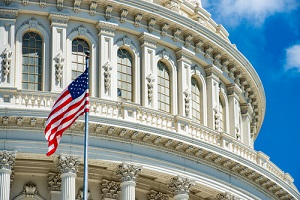Constantine Cannon Partner Gordon Schnell Published in The Hill on the Need to Strengthen Whistleblower Protections to Avoid the Next Boeing-Style Corporate Fiasco

Last week (May 7), The Hill published an Opinion Piece by Constantine Cannon whistleblower partner Gordon Schnell on the need for stronger whistleblower protections to avoid the next Boeing-esque corporate fiasco. Schnell pointed to the ever-expanding crisis Boeing has faced, with new whistleblower revelations emerging every week, as just the latest demonstration “that there is something seriously wrong with how we treat whistleblowers in America.”
Schnell questions why so many companies and government agencies treat whistleblowers with such contempt, ignoring the critical role whistleblowers play in uncovering problems early on and believing they can punish whistleblowers into silence. Boeing is not the only company to fall into this trap. Schnell also points to Facebook, Twitter, Theranos and a host of other prominent companies “forced to weather a maelstrom of unfavorable media and government attention for ignoring their whistleblower admonitions.”
In virtually every case, Schnell argues, “these companies would have avoided government and media scrutiny, substantial penalties and a public relations nightmare if they had simply embraced the whistleblowers and their concerns from the start.” Schnell’s own work with whistleblowers proves his point. As he explains, the whistleblowers who seek assistance from Constantine Cannon almost always reach out only after they first raised their issues and concerns at work, and only after they were rebuffed or retaliated against for doing so.
Schnell believes the government needs to do more to shake up this deep-rooted distrust and disdain for whistleblowers. The Supreme Court took a significant step in Murray v. UBS by significantly lowering the bar for whistleblowers to prove illegal retaliation, unanimously recognizing that “the health, safety, or well-being of the public may well depend on whistleblowers feeling empowered to come forward.”
Schnell urges Congress to follow suit by strengthening the whistleblower protection laws, which he believe generally fall short in several ways: (i) they impose too short a window to bring a retaliation claim (typically 180 days or less); (ii) they require whistleblowers to pursue administrative channels with a weak track record of supporting whistleblowers; and (iii) they provide insufficient relief for successful whistleblowers (typically only reinstatement and backpay).
According to Schnell, “this hardly provides the kind of meaningful mechanism for scaring employers straight and fostering a more whistleblower-friendly environment.” Instead, “whistleblowers need an easier path to pursue employers behaving badly, and employers need a more serious regulatory deterrent to mistreating whistleblowers.” Schnell argues for significantly more sizeable financial penalties for offending employers and individual accountability for offending managers and compliance professionals.
As Schnell concludes, only with stronger protections and deterrents will we see a meaningful shift in the whistleblower status quo:
The next time a whistleblower comes along warning of an impending financial disaster or public health or safety risk, the employer must feel compelled to act on the whistleblower’s concerns. The employer, the whistleblower and the public will all be the better for it.
Click here to read the full article.
If you would like to learn more about what it means to be a whistleblower, please do not hesitate to contact us and we will connect you with an experienced member of the Constantine Cannon whistleblower team for a free and confidential consultation.